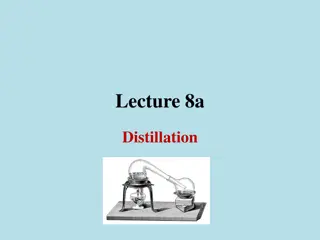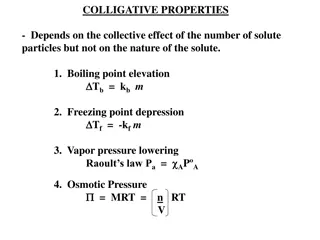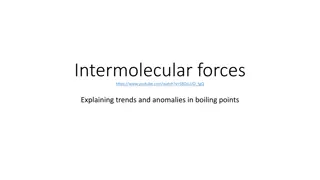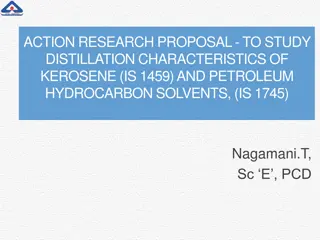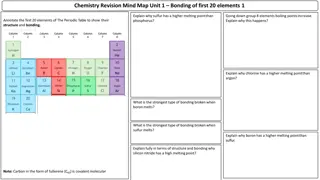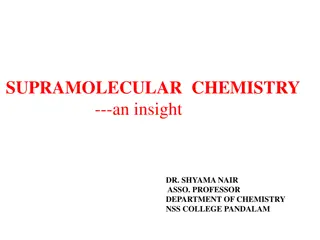Understanding Boiling Point Determination in Chemistry
Boiling point is the temperature at which a substance changes from a liquid to a gas phase, influenced by factors like molecular weight, polarity, branching, and impurities. This crucial property is used for substance identification and purity checks. The experimental process involves precise handling and control of factors like pressure and temperature.
Download Presentation

Please find below an Image/Link to download the presentation.
The content on the website is provided AS IS for your information and personal use only. It may not be sold, licensed, or shared on other websites without obtaining consent from the author. Download presentation by click this link. If you encounter any issues during the download, it is possible that the publisher has removed the file from their server.
E N D
Presentation Transcript
Experiment 2 Boiling Point Determination
The boiling point: is the temperature at which it changes the compounds from a liquid phase to a gas phase and the temperature when its vapor pressure is equal to the atmospheric pressure.
The boiling point: is a physical property often used to identify substances or to check the purity of compound. The boiling point: is measured at one atmosphere (760mmHg).
Boiling point: is the temperature range over which enough energy is provided to a liquid compound so that its molecules can separate sufficiently to transform to a gaseous state by breaking non covalent interactions. No covalent bonds are broken during a change from the liquid phase to the gas phase.
The atmospheric pressure plays an important role in determination of the boiling point correctly. Reduction of the pressure leads to a decrease or a depression in the boiling point and vice versa.
Factors Influencing Boiling Point: structure features of compound influence the boiling point by increasing or decreasing the molecules ability to establish and maintain non covalent interaction that hold the molecules close together in the liquid state. The structure features of a compound that influence the boiling point are:
1.Polarity: Increased H-bonds, polar covalent bonds or formal changes in a molecule tend to increase the boiling point. 2.Molecular Weight: Increase molecular weight increase boiling point. Why? 3.Branching: decreases boiling point. Why? 4.Impurity of compound : increases boiling point
Precautions 1- The capillary tube should be properly sealed . 2- The rubber band should be fixed near the mouth of the test tube so that the open end of the test tube with rubber band is sufficiently the liquid paraffin bath 3- The liquid paraffin bath must be heated very slowly and the bath is stirred gently to ensure uniform heating. 4- The open end of the capillary tube should be well inside the liquid.





